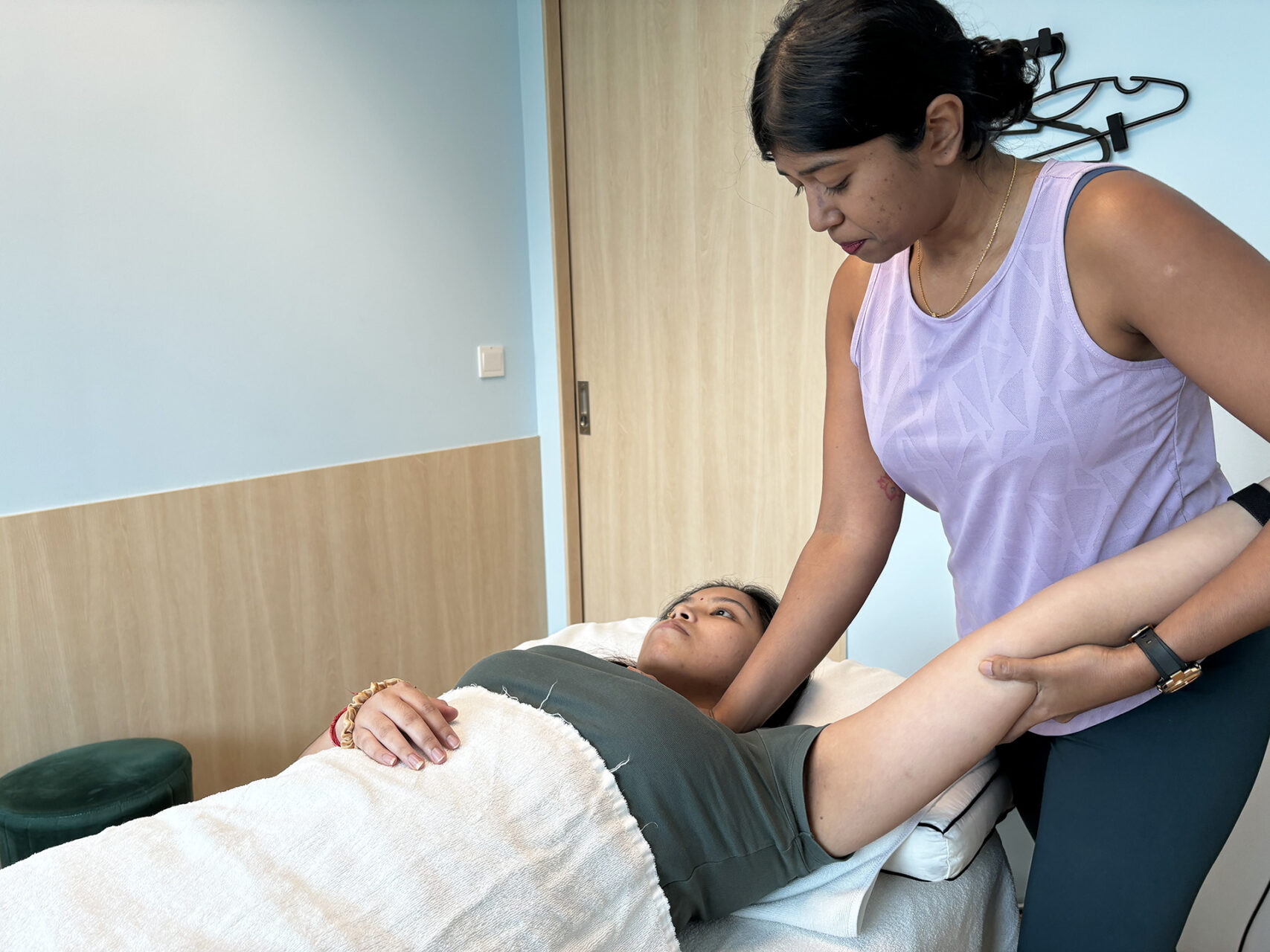|
Getting your Trinity Audio player ready...
|
What Is Shoulder Tendonitis?
Pain in the shoulder tendon, often referred to as shoulder tendonitis, is one of the most common causes of shoulder discomfort and restricted movement. It typically stems from inflammation or the degeneration of the rotator cuff or biceps tendon. These are vital in stabilizing the shoulder joint to enable smooth, functional movement. The shoulder’s complex anatomy includes tendons and many other parts, such as bones like the humerus and scapula, and the bursa (a fluid-filled sac that reduces friction), all of which can be compromised when these tendons become irritated or overused.
Left untreated, the condition may worsen, interfering with daily tasks and sleep. Fortunately, with early diagnosis and targeted physiotherapy, shoulder tendon pain is highly treatable and a full recovery is possible.
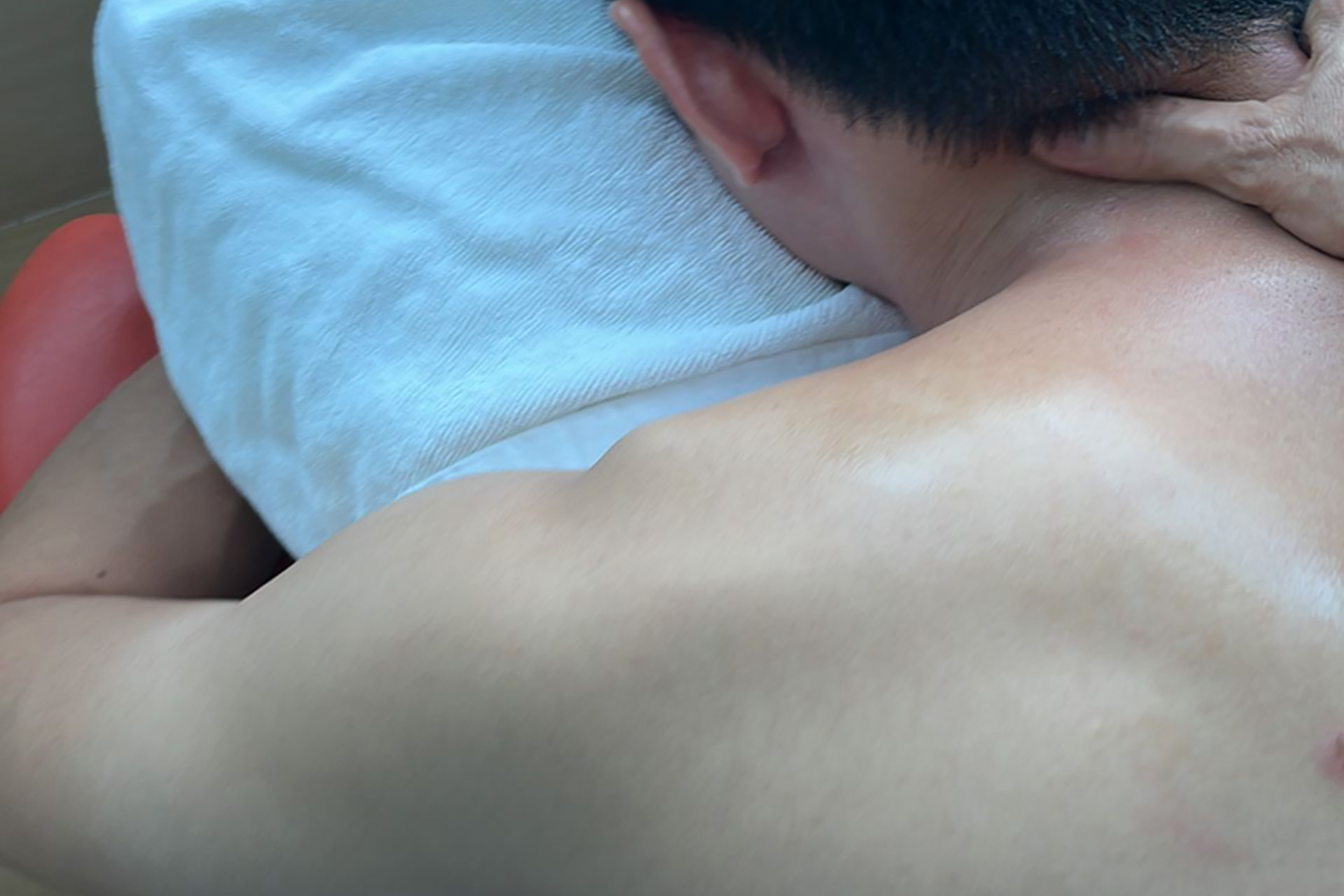
Causes and Risk Factors of Shoulder Tendon Pain
Shoulder tendon pain is most often the result of repetitive motion or the overuse of the arm, leading to inflammation of the rotator cuff tendons. The rotator cuff is a group of muscles and tendons surrounding the shoulder joint, providing stability and allowing the arm to move through a wide range of motion.
When these tendons are subjected to repeated stress, such as from overhead sports like tennis, swimming, or baseball, they can become irritated and inflamed, resulting in shoulder pain and reduced function.
Certain occupations that require frequent lifting, reaching or repetitive arm movements, such as construction work or painting, also increase the risk of developing shoulder tendonitis. Poor posture or improper biomechanics, especially during daily activities or exercise, can place additional strain on the tendons of the rotator cuff, further contributing to shoulder inflammation.
If you have a history of shoulder conditions or have experienced a sudden injury to the shoulder, you may be more susceptible to developing tendonitis. Age-related changes in the muscles and tendons can also increase the shoulder’s vulnerability to injury and inflammation.
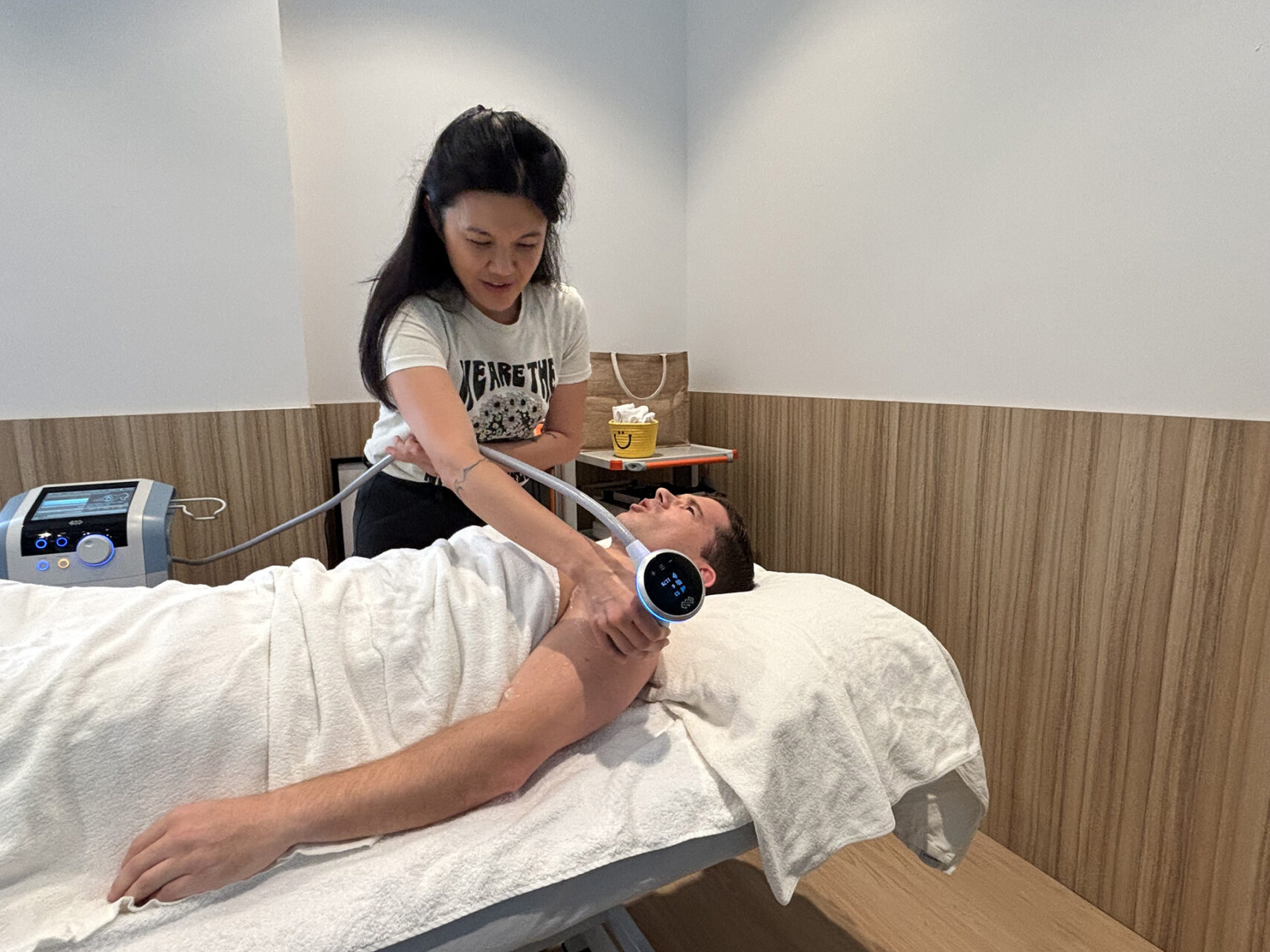
Recognizing the Symptoms of Shoulder Tendonitis
Shoulder tendon pain usually begins as a dull ache in the front or side of the shoulder. Over time, this pain can become more intense or persistent, especially during specific activities such as reaching overhead or lifting objects. For some individuals, the pain may intensify after sleeping on the affected side. Weakness, stiffness, and a reduced range of motion are also common for people with shoulder tendonitis.
Some people experience clicking or catching sensations when moving their arm. Left untreated, the condition can lead to compensatory movement patterns, which may increase stress on the neck, upper back, or even the opposite shoulder.
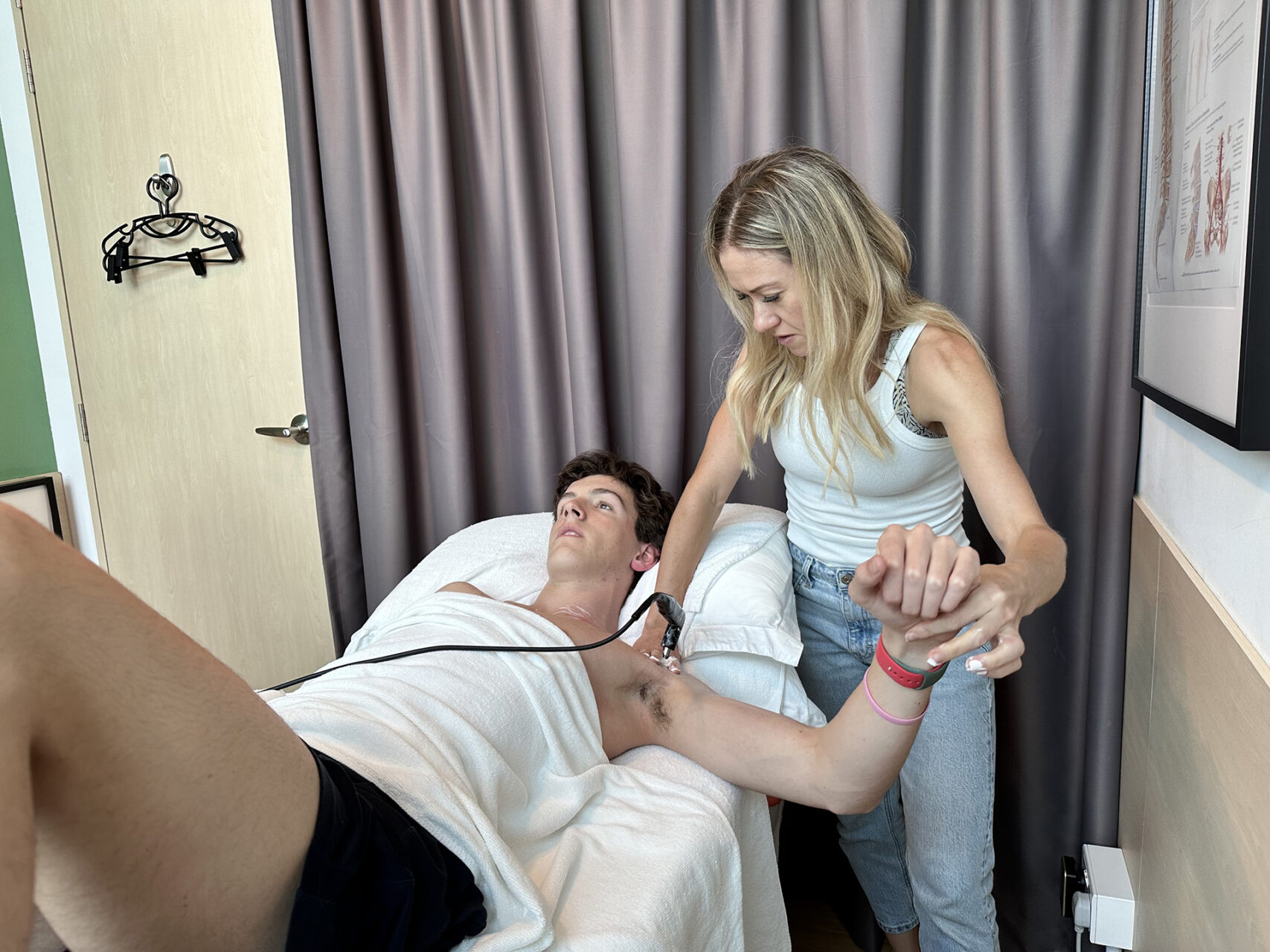
Complications and Consequences
If shoulder tendonitis is not addressed promptly, it can lead to complications that can significantly impact your quality of life. Persistent inflammation and pain can become chronic, making everyday activities increasingly difficult.
Over time, untreated tendonitis can cause the tendons of the rotator cuff to weaken or even rupture, potentially requiring more intensive treatment or surgical intervention. In severe cases, permanent damage or disability can occur.
Additionally, ongoing inflammation can increase the risk of developing other shoulder conditions, such as bursitis or rotator cuff tears, further complicating recovery. Chronic pain and loss of function can also impact your ability to work, participate in sports, or engage in daily activities. That’s why it’s key to getting your shoulder tendon pain diagnosed and treated by a medical specialist.
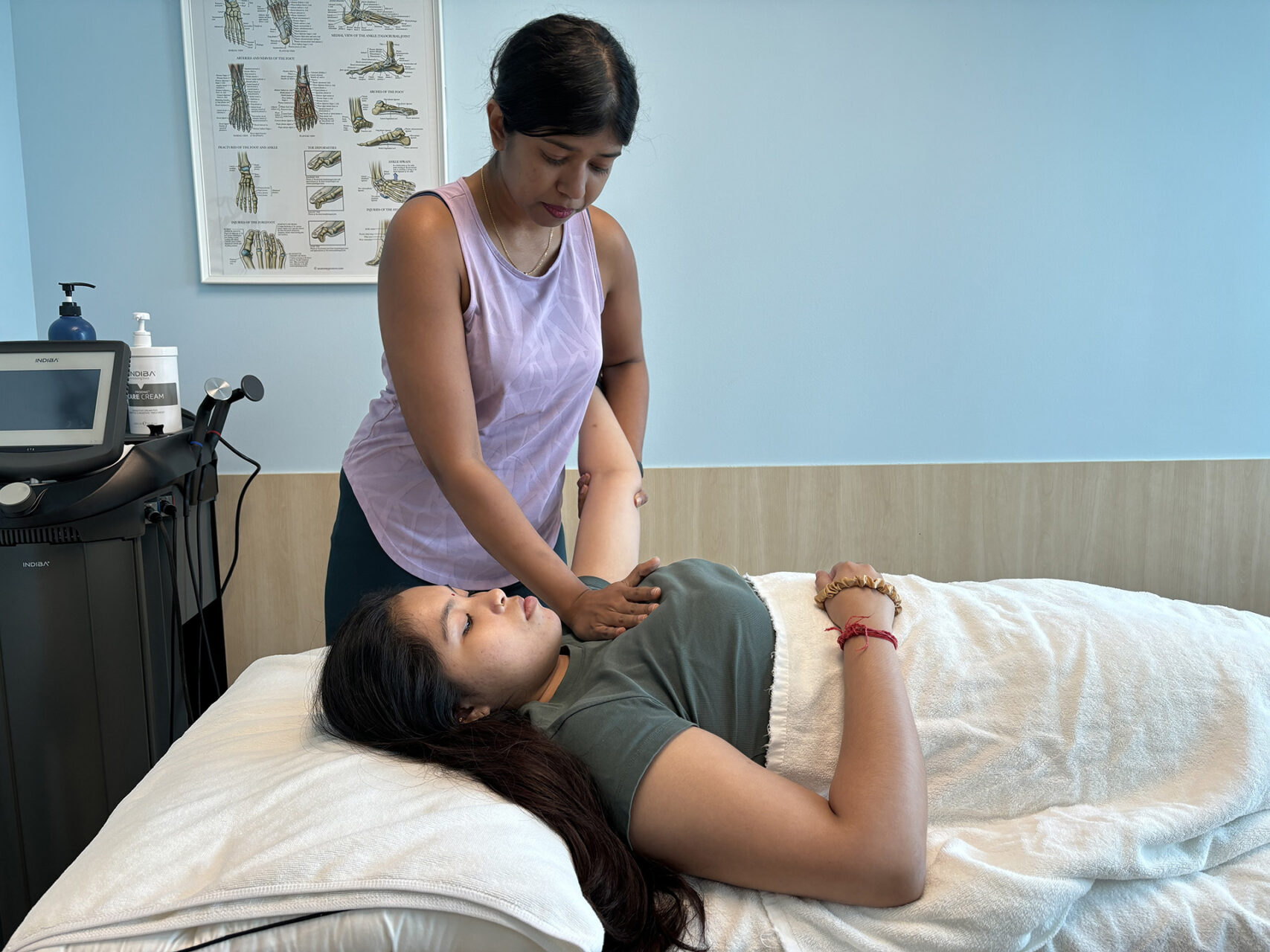
Diagnosis and Clinical Evaluation
Accurate diagnosis is the first step in effective shoulder tendon pain treatment. At HelloPhysio, we conduct a comprehensive clinical assessment that includes a detailed history, physical examination, and movement analysis to gain a complete understanding.
By identifying both the symptomatic tissue and the underlying causes, such as postural dysfunction or muscular imbalances, we tailor a rehabilitation program that’s as efficient as it is effective.
The Role of Physiotherapy in Treatment
Physiotherapy is highly effective in treating shoulder tendon pain. It addresses the inflamed or degenerated tendon, as well as the contributing mechanical and neuromuscular factors. At HelloPhysio, our treatment plans are personalized and evolve with your recovery.
Manual therapy, including soft tissue release and joint mobilization, helps reduce muscle tension and improve joint mechanics. Guided rehabilitation exercises focus on activating and strengthening the rotator cuff, scapular stabilizers, and surrounding musculature to restore optimal shoulder function.
As pain subsides, the goal shifts from symptom relief to long-term prevention. We emphasize postural re-education, movement retraining, and functional strengthening that align with your daily and sporting activities.
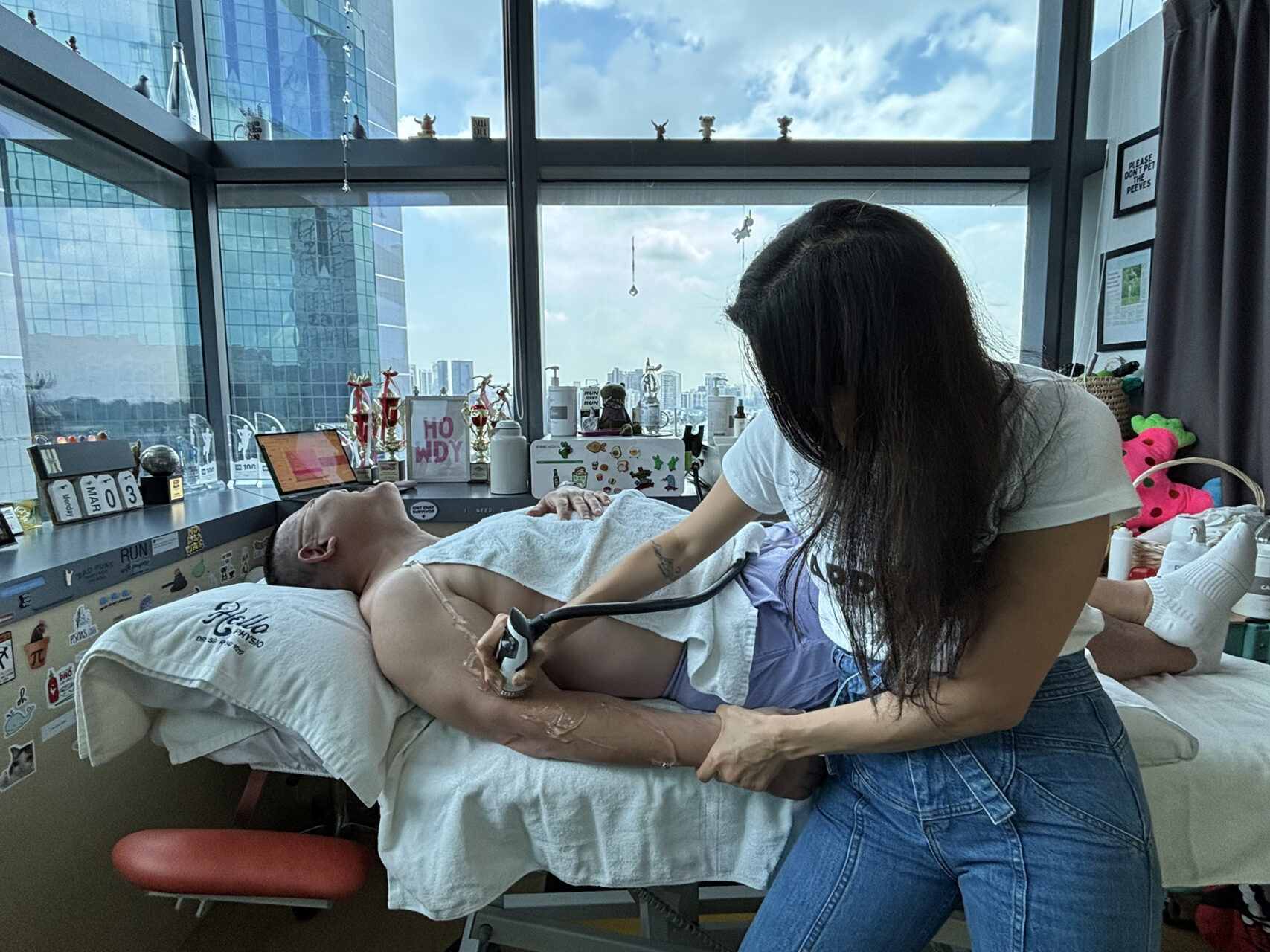
Accelerating Recovery with INDIBA® Activ and Shockwave Therapy
Both exercise and manual therapy are essential. And their benefits can be enhanced by adjunctive technologies like INDIBAⓇ Activ and Shockwave Therapy, which can significantly accelerate recovery and improve outcomes.
INDIBA uses a patented 448 kHz radiofrequency current to enhance cellular metabolism, improve circulation, and accelerate tissue repair. In cases of shoulder tendon pain, particularly chronic tendinopathies, INDIBA helps normalize cellular activity, increase oxygenation, and reduce pain. Its thermal and subthermal effects promote collagen remodeling, essential for tendon health.
Patients often find that INDIBA reduces pain quickly, making it easier to engage in rehabilitation exercises, speeding up overall recovery timelines.
Shockwave Therapy offers a different but complementary effect. This non-invasive treatment delivers high-energy acoustic waves to the affected tendon. These waves trigger a localized inflammatory response that encourages the body’s natural healing process. They also promote neovascularization, stimulate the production of new collagen fibers, and break down calcific deposits or scar tissue that may impede recovery.
At HelloPhysio, we tailor these treatments to your specific condition and stage of recovery. For instance, INDIBA might be used early to control inflammation and relieve pain, while Shockwave Therapy may be introduced later to address chronic fibrosis or calcification. Combining both modalities with skilled physiotherapy ensures a comprehensive and accelerated recovery path.
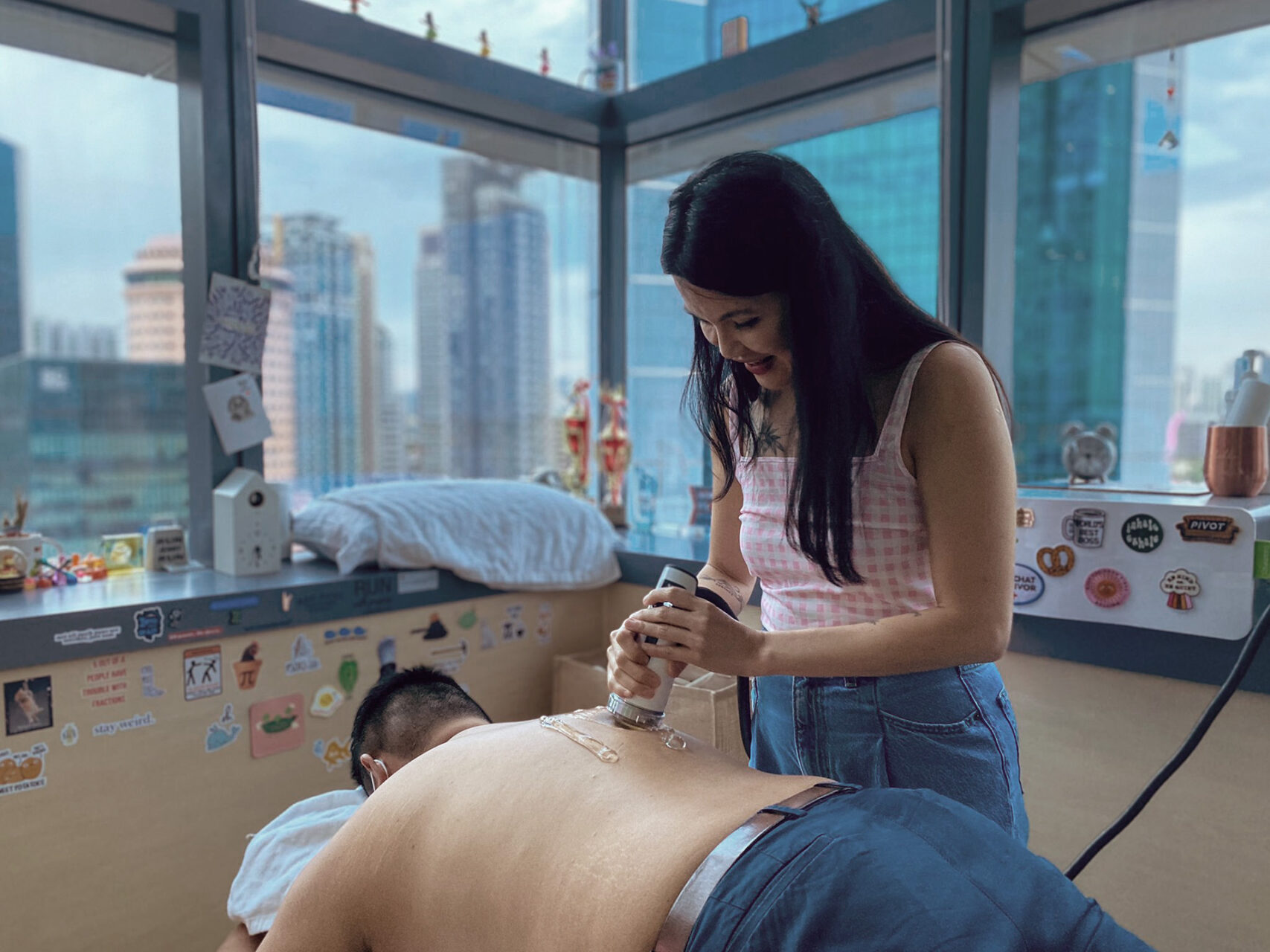
Alternative Treatment Options
Therapies such as Dry Needling or Sports Massage can promote healing, reduce pain and improve circulation in the shoulder area. Many people also benefit from gentle exercises such as those in Clinical Pilates, which focus on improving range of motion and strengthening the muscles that support the shoulder joint.
These alternative treatments can complement your primary care plan. However, it’s important to consult with your healthcare provider before starting any new therapy or exercise program. This ensures that your treatment options are safe and tailored to your specific needs.
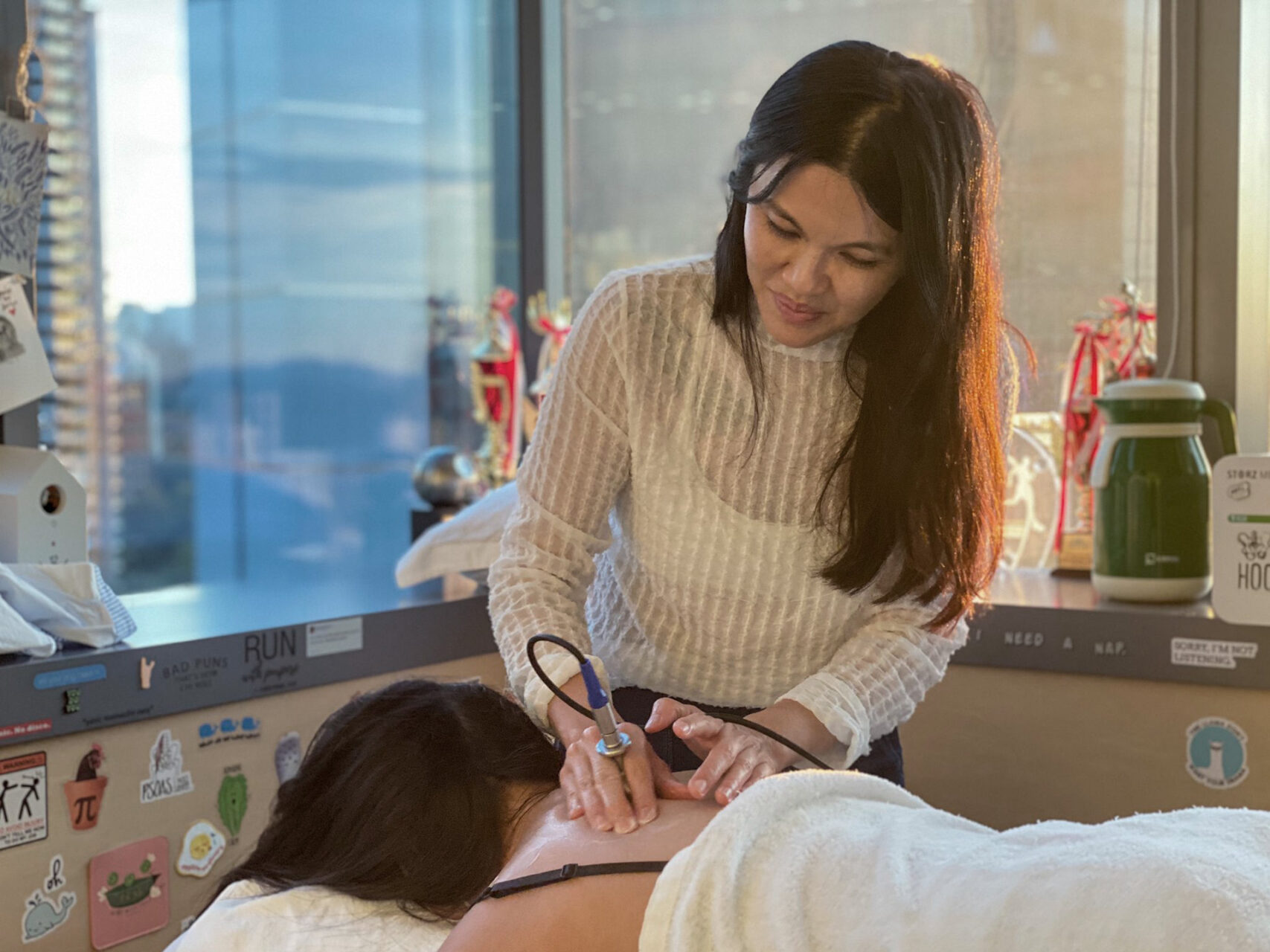
Returning to Sports and Activities
If you have been diagnosed with shoulder tendonitis, it is important to give your shoulder adequate time to heal before resuming sports or activities that may have contributed to your injury. Your healthcare provider will develop a personalized rehabilitation plan for you focused on restoring range of motion, strengthening the muscles around the shoulder joint, and minimizing re-injury risk.
When you’re ready to return to activities, start slowly and gradually increase the intensity and duration of your workouts, with the guidance of your medical specialist. Incorporate proper warm-up and cool-down exercises to prepare your muscles and tendons for movement, and be mindful of your posture and biomechanics during activity. By taking a gradual and cautious approach, you can safely return to the sports and activities you love while protecting your shoulder from further tendonitis or pain.
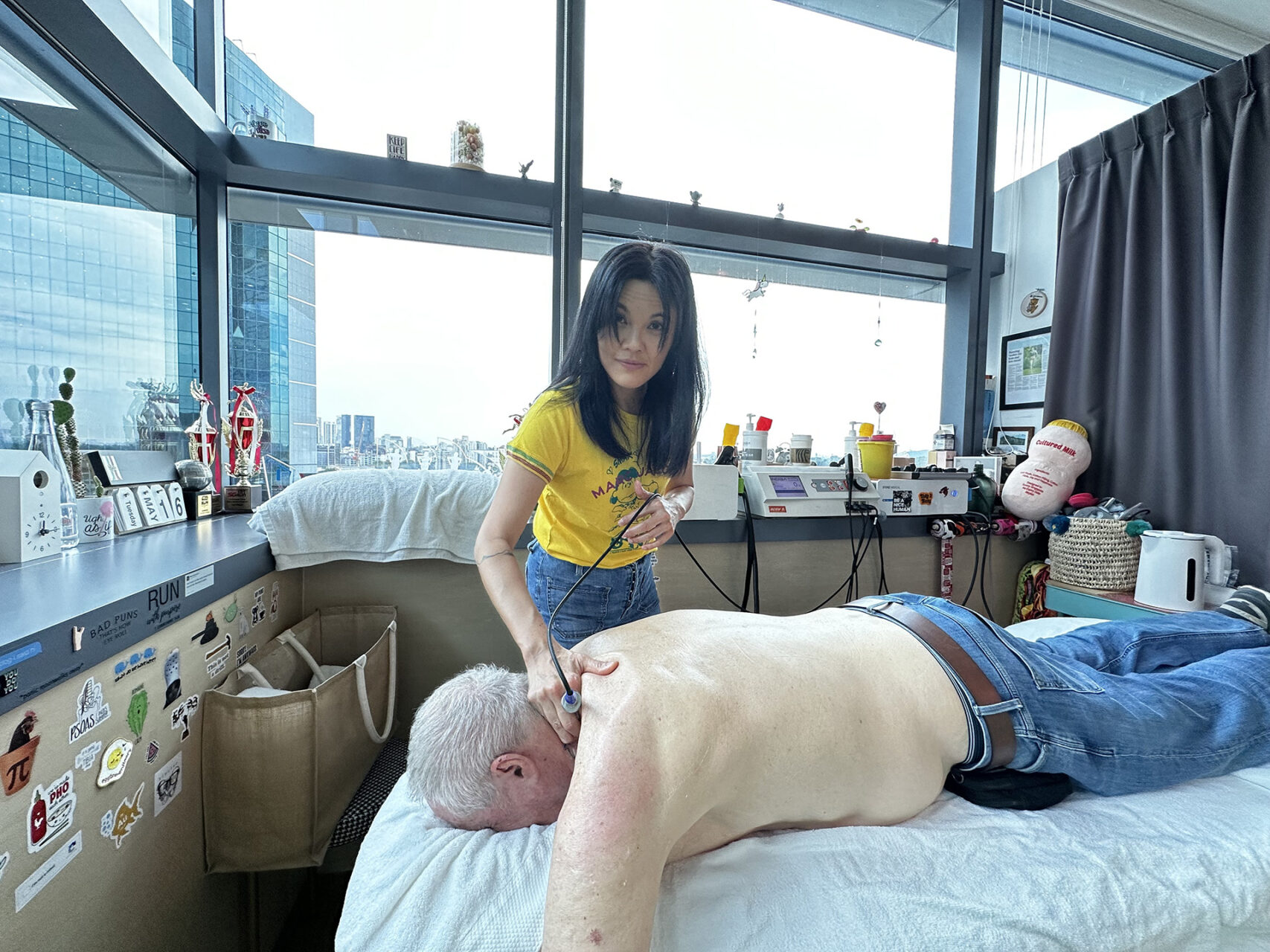
Managing and Preventing Shoulder Tendon Pain
Successfully managing shoulder tendonitis involves more than just short-term pain relief. A long-term strategy is required to prevent recurrence. At HelloPhysio, we emphasize a proactive, personalized approach that combines targeted treatment with education and injury prevention.
Once inflammation subsides, addressing the underlying causes, such as poor posture, repetitive strain, or muscular imbalances, is essential. Our physiotherapists provide movement screening, ergonomic adjustments and conditioning programs tailored to your lifestyle, whether you’re an athlete or a desk-based professional.
Ongoing care may include periodic physiotherapy sessions or sports massage to maintain joint health and catch issues early. With expert guidance and a consistent routine, you can minimize the risk of flare-ups and continue enjoying an active, pain-free lifestyle.
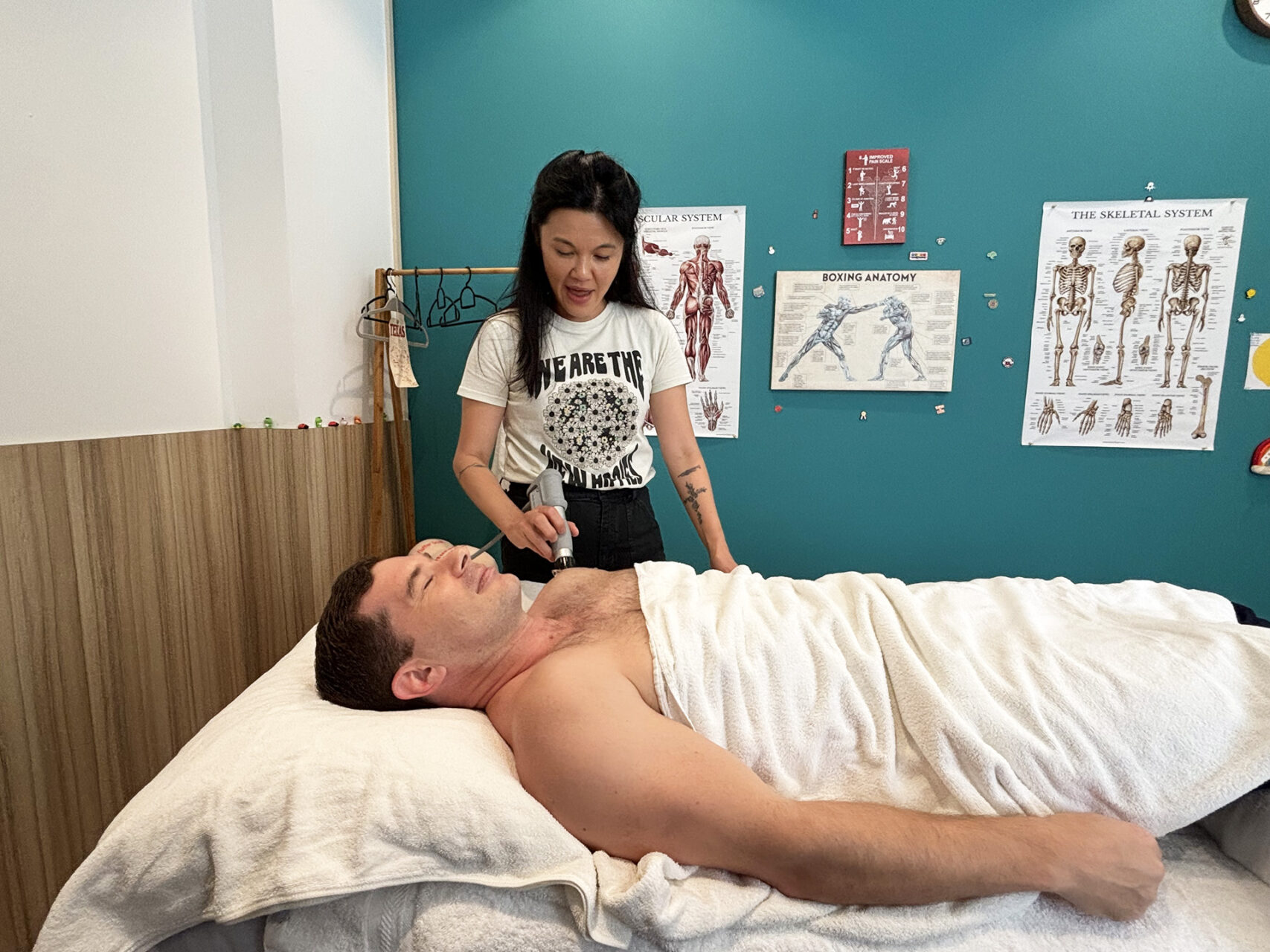
Why Early Intervention Matters
The longer shoulder tendon pain is ignored, the more likely it is to become a chronic condition. Chronic tendon problems can lead to tendon thickening, scar tissue formation, and even partial tears that may require surgical intervention. Early intervention improves your chances of full recovery and reduces the likelihood of long-term complications.
If your shoulder pain has lasted over a couple of weeks, worsens with activity, or affects your sleep and daily life, it’s time to seek help.
Take the First Step to Recovery
At HelloPhysio, we believe in empowering our patients with the tools, knowledge, and support they need to take control of their recovery. Whether you’re experiencing new symptoms or a persistent issue that just won’t go away, our team is here to help.
From manual therapy and expert rehabilitation to advanced technologies like INDIBA Activ and Shockwave Therapy, our approach to shoulder tendon pain treatment is as comprehensive as it is compassionate.
Don’t let shoulder pain limit your life. Contact HelloPhysio today to schedule your consultation and begin your journey to long-term relief and better movement.

